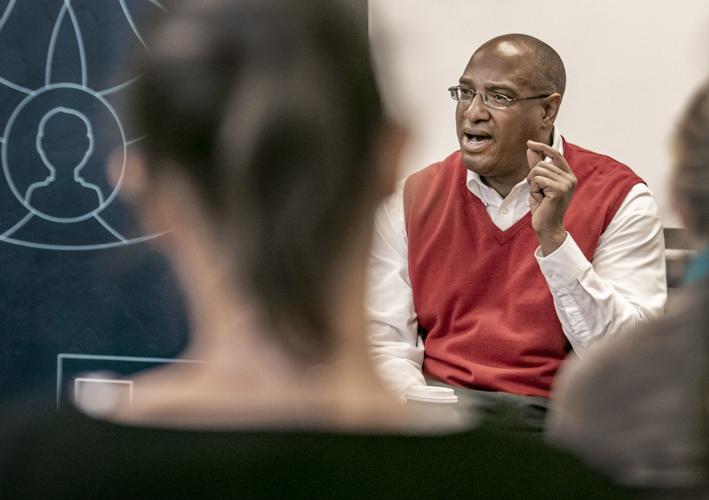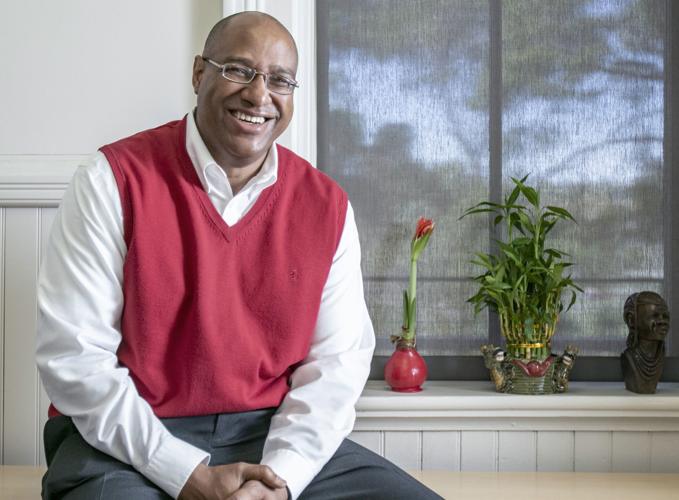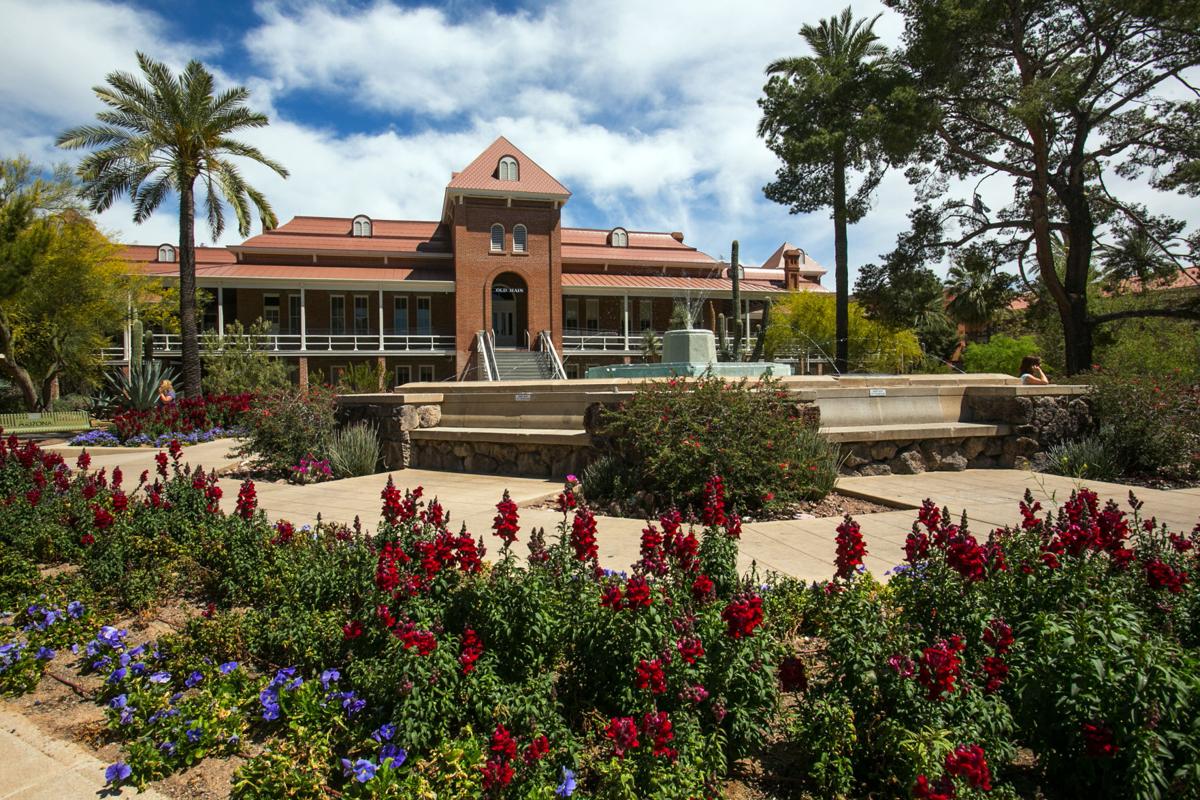This is Part 6 of the Arizona Daily Star’s six-part look into universities’ efforts to enforce and improve Title IX, a federal law that prevents gender discrimination. The Star partnered with Solutions Journalism Network to travel to schools that have made recent changes to their Title IX programs in response to crisis or on their own volition.
University students and faculty across the country may look toward the nation's capital to determine the future of Title IX, but Ron Wilson is focused on Tucson.
Wilson was hired as the University of Arizona's Title IX director in late October, but his title changed to Vice President for Equity and Inclusion and Title IX Director in January, after the UA created its new Department of Title IX, Equity and Inclusion.
A former South Tucson judge, Wilson has a bold vision for Title IX at the UA and says the school has work to do regardless of how the federal government decides to proceed with Secretary of Education Betsy DeVos' proposed changes to the federal law that guarantees gender equity for students at schools that accept federal funding. Wilson believes the proposed changes, which critics fear will put the rights of the accused over those of the accuser, are unlikely to be implemented.
"The president has a better chance of getting his wall built than these changes have of going through," he said.
Still, he said, it's important to understand Title IX's past in order to see its future.
Episode 5: Ron Wilson's blueprint as UA's Title IX director
"In the past, victims were not given the opportunity to live, learn and work in a safe environment," he said. "Look at the number of (Title IX) cases filed, the numbers of balls dropped and the number of universities exposed over the last 40-something years."
Title IX was implemented in 1972, primarily as a way to provide gender equity in sports. In that arena society has made a lot of headway, but we still have a long ways to go toward addressing sexual misconduct, Wilson said.
He referenced double-digit percentages of former female athletes who are now in leadership roles, saying that athletics provided a gateway for — in many cases — a free education, as well as the skills and tools necessary to participate in activities outside of sports.
"That wouldn't have been possible without Title IX," Wilson said. "But when you turn the coin over and look at the sexual misconduct side, the same road we traveled with gender equity in sports needs to be traveled with sexual misconduct."
And that needs to happen regardless of how Title IX changes play out in Washington, he said.
"Here in Arizona, we need to do what's right because it's the right thing to do," he said.

Ron Wilson, new Title IX director at the University of Arizona drives home a point during a training for academic advisors at the UA Student Union in Tucson on March 4, 2019 .
'We all need to own this'
Major social movements of the past, including women's suffrage and civil rights, began at the grassroots level.
Now it's up to schools and communities to take control of their own destinies, solve their own problems and "show D.C. how it's done," Wilson said.
"It's the people who have demanded it," he said. "It's OK not to agree with politicians and their agendas if what they're trying to impose isn't in the best interest of the community."
Universities and society should always remember their obligations, Wilson said.
"We have to look at the past, we can't ignore it. And what are we doing now in order to shape our future to what it can be?," he said. "This is all of our problem, not just schools' or victims' or respondents'. We all need to own this."
Part of moving forward for the UA means acknowledging past troubles while taking meaningful steps to change, Wilson said.
Wilson just finished rewriting the UA's Title IX policies, including its procedures and processes, and has submitted a first draft for review.
He also hopes to hire two more sexual assault advocates to work with the two already on campus. Banner-University Medical Center is getting ready to open a medical forensic exam room for administration of sexual assault kits. Until now, victims had to bypass the campus hospital and travel 5 miles to Tucson Medical Center for forensic testing following a sexual assault.
The Title IX office is also working with the UA's Consortium on Gender-Based Violence to create a curriculum around bystander intervention, toxic masculinity, sexual assault awareness and prevention, and mental health. The class would be available for credit to students in all disciplines.
Wilson has also expanded the Step Up! Bystander Intervention program to the whole campus. Previously, it was only offered to specific groups.
Thea Cola, who works in the UA's Women's Resource Center, has been hired into the Title IX office to create education programs for students and faculty on all UA campuses.
Wilson also hopes to hire more Title IX investigators, including external investigators to assist when the caseload gets too heavy. That will help the UA meet Wilson's admittedly ambitious goal of completing Title IX investigations within 90 days.
The UA has two full-time investigators, which Wilson would like to boost to five. He acknowledges that will be expensive, but says, "You can't put a price tag on these issues. And with (UA President Dr. Robert C. Robbins) at the helm, we have the will to do it."
Robbins was hired in 2017. Under his leadership, the UA brought in outside counsel to review Title IX policies and procedures. One recommendation was to hire a dedicated Title IX director, which resulted in Wilson's addition.
Wilson's respect for Robbins is mutual, as the UA president says he's confident that he's found the right person to take the helm of Title IX.
"Ron Wilson has unique career experience and perspective that I believe will drive the University of Arizona to become a leader in working against inequity, gender violence and discrimination," Robbins said. "I am very glad to be collaborating with Ron, and I look forward to continued work with him and our skilled professionals to set a new standard of performance at the University of Arizona."
Robbins echoed Wilson's previous sentiment about striving to lead the nation's universities in the area of diversity, inclusion, equity and Title IX programs.

Ron Wilson
QR codes and PTSD
Wilson has plenty of changes underway, and even more plans on the horizon.
He wants to get QR codes printed on the back of all UA student ID cards, which would direct students to Title IX resources once scanned. Typing coherently or talking to Siri can be overwhelming in the wake of an assault, particularly if a victim is intoxicated, he said.
The UA also is producing videos about consent, drugs and alcohol, and the new medical forensic exam room. The videos feature UA employees so students will see a familiar face if they later have a problem and need to seek out staff.
Finally, Wilson would like to see a greater acknowledgement that survivors of sexual assault often experience some of the same symptoms and behaviors as people with post-traumatic stress disorder.
"Trauma and stress also manifests in physical ailments," he said, referencing his experience as a judge in South Tucson, where he often encountered veterans and homeless people with PTSD.
Wilson has been approached by a doctor in the immunology department at the UA who is interested in conducting a study about the possible links between sexual assault trauma and cancer, with the idea that trauma can affect the immune system.
"This kind of work can produce amazing data and help the university and community better understand what we need to do for victims," Wilson said.
Wilson acknowledges that it will take money and time to accomplish his goals, saying that there's a process to get everything done.
"Title IX at the UA tomorrow won't look like it does today, and it certainly won't look like it did in the past," he said.
With work to be done at the UA right now, he isn't waiting on Washington D.C. to start enacting change.
He wants Title IX at the UA to be a national model on how to do it right. And while he knows that won't be easy, it's a challenge he's more than willing to embrace.
"This (Title IX) is one of the issues of the day, like the Me Too movement and Black Lives Matter," Wilson said. "It's an issue that people will look back on and say, 'Where were you? Were you sitting on the couch or standing with other committed human beings to change the culture and environment so that students are protected?' "




